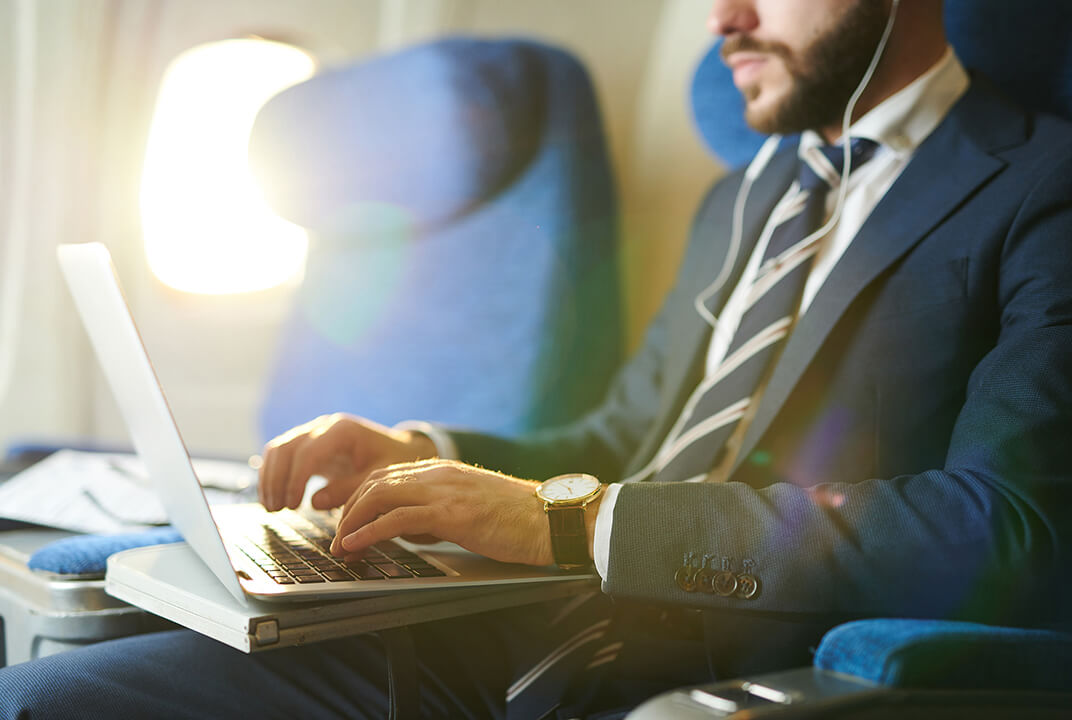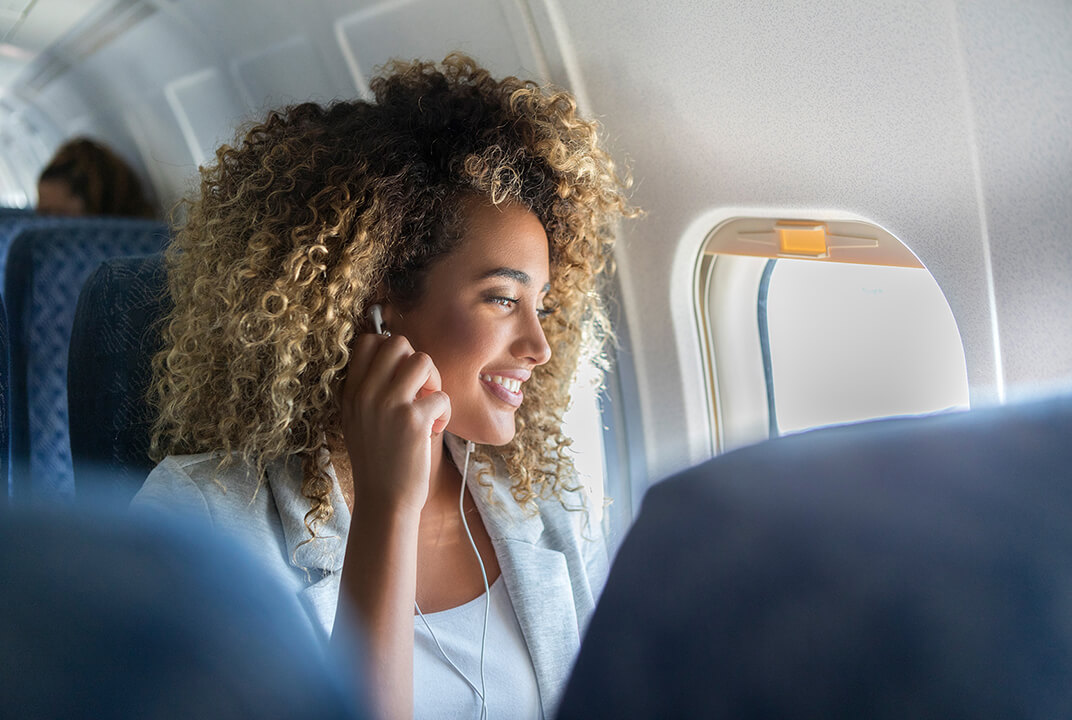Insight | Satisfying the always-connected traveller
Select Language
Satisfying the always-connected traveller
Aviation
Inflight connectivity: what was considered the reserve of media-hungry millennials and early adopters has now become a typical requirement from travellers. And as the demand for connectivity grows across the board, airlines are under pressure to keep up with expectations.
Reliability over speed
In one of our most comprehensive surveys, we’ve gathered responses from more than 9,000-passengers across the world, 83% of whom would proactively select an airline that offers in-flight Wi-Fi.
What’s far more telling is that more than half of passengers would prefer connectivity to an in-flight meal! And on top of that, the majority of travellers are willing to actually pay for in-flight connectivity, regardless of the distances they’re travelling, which speaks volumes about the value they place on being connected, whether it’s to stay in touch with friends and family during the flight, stream video or use applications.
But offering Wi-Fi on an airline is only the beginning, as evidenced by very specific concerns shared by passengers about the quality of their connection.
Once getting on the plane they expect the Wi-Fi to be dependable above all else. Three out of four passengers (75%) valued reliability of the network, while speed lagged behind, with just 19% of respondents considering it a priority. And why wouldn’t they value reliability? Out of those who had the opportunity to use Wi-Fi on board, one in ten weren’t even able to successfully connect their devices to the aircraft’s network, let alone use it.
According to our survey, 60% of passengers are also less inclined to connect if the service is poor, but a reliable service that does not disconnect itself at regular intervals during the flight can be expected to be well-utilised. We already know modern travellers to be as restless as they are voracious for media, and will only have so much patience for a poor connection before giving up on it.
The future of on-board connectivity
You can also imagine how frustrating an unreliable connection must be to the passenger, when 78% of those we surveyed expect to see Wi-Fi replace traditional in-flight entertainment systems within the next five to ten years. In the recent past, we saw travellers stowing away their tablets and smartphones into their carry-on luggage in favour of a nap or using the in-flight entertainment system and quite often only taking their devices out only once they’ve landed. But we are now ushering in a rapidly growing trend of travellers keeping their tablets or smartphones in their front seat pockets, and logging on promptly after take-off in order to stream content.
This is especially true in Latin America, for example, where passengers were most likely to believe that in-flight connectivity will usurp traditional in-flight video entertainment in the future. So we weren’t surprised when we also found most Latin American passengers were looking to connect to Wi-Fi primarily to stream video.
With the Inmarsat In-Flight Connectivity Survey, we have in front of us a very clear picture of what the connected aircraft has to offer the consumer within the next immediate years to keep up. I’m very excited to see how airlines and their partners tackle this challenge of the always-on, always-connected passenger.
About the author
Leo Mondale joined Inmarsat in 2004 as Vice President of Business Development and Strategy, based in Washington DC. He now serves as President of the Aviation business unit, and is based in Nyon Switzerland. In his time with the company, Leo also founded and led the “Growth Management and Support” organisation of Inmarsat, which included responsibility for Inmarsat’s Product and Service Development, Programme Management, the development of the Global Xpress programme, and overseeing the establishment of commercial aviation as a specific line of Inmarsat business.
Prior to joining Inmarsat, Leo held a variety of senior positions in the satellite and aerospace industries, including at Iridium, Inc. where he was ultimately Chief Financial Officer, as partner in Thaler Associates, Chief Executive Officer of @contact, LLC, and as President of Arianespace Inc.
Leo holds a Bachelor of Arts degree from the University of Minnesota and was awarded a Juris Doctor degree from The George Washington University, Washington, DC.


